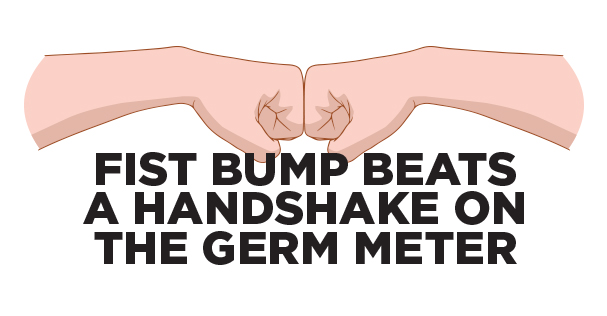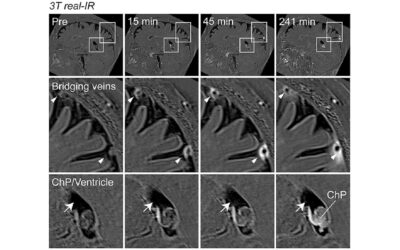by Harvard Health Letters
The handshake is an important way that many people communicate nonverbally. It’s a standard gesture when we say hello, goodbye, and make an agreement. We’ve been doing it for millennia. But hands carry germs that can spread infections to others.
Some of these bugs can be very serious, including those that can’t be killed by standard antibiotics. Is it time to consider changing the tradition of shaking hands? Two researchers from Aberystwyth University in Wales make the case that handshaking exchanges a lot more germs than a modern alternative, the fist bump. Their experiment was simple. Both researchers put sterile gloves on their right hands. One dipped the gloved hand into a container filled with a solution teeming with harmless E. coli bacteria. Then they shook hands and measured the number of bacteria on the glove that had not been dipped in the E. coli solution. They did the same thing for high fives and fist bumps.
Shaking hands transmitted two times more bacteria than high fives, and 10 times more bacteria than bumping fists. Their results are published in the August 2014 issue of the American Journal of Infection Control.
Fist bumps went viral in 2008 when then-candidate Barack Obama and his wife, Michelle, gave each other a fist bump after a campaign speech in Minnesota.
In June, authors of an article in The Journal of the American Medical Association raised eyebrows by suggesting that handshaking be banned in hospitals. Despite the daily efforts of hospital infection control teams, hospital workers only get hand cleansing right 40 percent of the time.
That’s one way healthcare providers spread harmful germs to their patients. An estimated one in 25 people who are hospitalized develop healthcare-associated infections. These infections kill 75,000 people each year, according to estimates from the U.S. Centers for Disease Control and Prevention.
It was a bold opinion piece. The handshake is a traditional way doctors and all patient care providers convey warmth and empathy to patients, family members and fellow healthcare workers. Would a fist bump do the same? Hard to tell.
Some people would easily make the change; for others it just wouldn’t be a good substitute for the handshake.
No matter how you greet someone, washing your hands often will do more to keep you from spreading germs than giving someone a first bump. It’s especially important if you are hospitalized or visiting someone in the hospital. (No matter where you are, if you don’t know where someone else’s hands have been, the fist bump may not be a bad option.)
Alcohol-based hand cleansers usually work just as well as washing with soap and water. The important exception is with the species of bacteria known as Clostridium difficile. Infection with it causes diarrhea. Clostridium difficile is not killed by alcohol. Washing your hands with soap and water is a must if you have this infection or visit someone with it.










